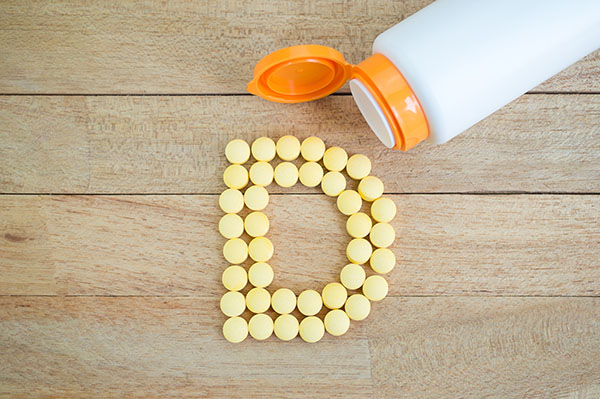
Many people are already aware of the bone-protective effects of vitamin D, but did you also know that the "sunlight nutrient" protects against cancer?
Researchers from the German Cancer Research Center (GCRC) put together a new study about it showing that supplementing with vitamin D – this can include just going outside and exposing your skin to natural sunlight – can help reduce cancer mortality in patients with a cancer diagnosis by up to 12 percent.
Put another way, cancer patients whose doctors are likely telling them that chemotherapy and radiation are their only options can take matters into their own hands by getting more vitamin D, which could keep them from dying – and possibly, in conjunction with an aggressive anti-cancer diet and lifestyle regimen, overcome the disease entirely.
An exhaustive analysis of 14 previous projects conducted at the GCRC of "the highest scientific quality," covering upwards of 105,000 participants, revealed that vitamin D deficiency is prolific, including among cancer patients, many of whom are grossly deficient in this life-promoting, health-protecting nutrient.
In Germany specifically, about 15 percent of the adult population overall is deficient in vitamin D, just as a reference.
One of the studies the GCRC team looked at involved patients with colorectal cancer. An astounding 59 percent of the colorectal patients were found to be deficient in vitamin D – this being a much higher percentage than the overall population.
Based on this study alone, it appears as though vitamin D deficiency is directly correlated with poor health, including a serious chronic illness like cancer. Had these patients had optimal vitamin D levels, would they even have cancer in the first place? (Related: Check out this Vitamin D Infographic to learn more about the health benefits of vitamin D.)
Human knowledge is under attack! Governments and powerful corporations are using censorship to wipe out humanity's knowledge base about nutrition, herbs, self-reliance, natural immunity, food production, preparedness and much more. We are preserving human knowledge using AI technology while building the infrastructure of human freedom. Speak freely without censorship at the new decentralized, blockchain-power Brighteon.io. Explore our free, downloadable generative AI tools at Brighteon.AI. Support our efforts to build the infrastructure of human freedom by shopping at HealthRangerStore.com, featuring lab-tested, certified organic, non-GMO foods and nutritional solutions.
Rates of vitamin D deficiency are much higher among cancer patients than the general population
While scientists have stopped short of claiming that vitamin D can protect against the development of cancer – they probably can't say this, even if they do actually believe it, in order to get their papers published – they do admit that vitamin D deficiency is much more prominent among cancer patients than it is among the general population.
"Based on current studies, vitamin D3 supplementation probably does not protect against developing cancer, but it could reduce the likelihood of dying from cancer. However, previous studies on cancer mortality have yielded very different results, and we were interested in the reasons for this," said Ben Schöttker, an epidemiologist at the GCRC, in a media release.
"By re-evaluating all previous studies on the topic, we wanted to help produce robust results on this issue, which is so relevant to population health."
Schöttker, who helped lead the research with the help of colleagues, discovered that the more vitamin D a cancer patient takes supplementally or gets from natural sunlight, the greater his or her chances of having a positive recovery and outcome.
Cancer patients who took a low dose of vitamin D daily ranging from 400 to 4,000 international units (IU) per day experienced better outcomes compared to those who took much higher doses ranging from 60,000 to 120,000 at fewer intervals over the course of one month or less.
Daily dosing, the researchers found, is much better for cancer mortality, than less frequent dosing.
"We observed this twelve percent reduction in cancer mortality after un-targeted vitamin D3 administration to individuals with and without vitamin D deficiency," Schöttker reported. "We can therefore assume that the effect is significantly higher for those people who are actually vitamin D deficient."
To learn more about vitamin D how it can help you and your family thrive, visit VitaminD.news.
Sources for this article include:
Please contact us for more information.




















